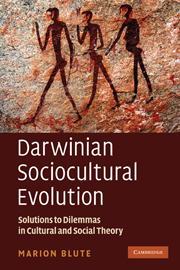The Advantages of Specialization Can Compensate for the Two-Fold Cost of Sex
In July I organized a session titled “Let’s talk about sexual selection” for the meeting of the International Society for the History, Philosophy and Social Studies of Biology held this year in Oslo, Norway. I gave a paper in the session titled “The puzzle of what compensates for the two-fold cost of sex solved: The advantages of specialization”. The talk took a brief point from a paper I recently published in Biological Theory on “Mating markets: A naturally selected sex allocation theory of sexual selection” – that the advantages of specialization can compensate for the two-fold cost of sex – and expanded on it. I will not repeat the long abstract of the talk given here (which was slightly different than the one in the conference programme anyway), just summarize it.
It is commonly said that there is a two-fold cost of sex – variously understood as the cost of meiosis (of producing offspring related by a coefficient of relatedness of ½ instead of 1), of producing sons to females (if males contribute only genes and not material resources to offspring), or of sexual competition and selection. However, specialists are commonly more efficient in the segment of a niche that they specialize in than are generalists in that segment – a point I first made more than twenty years ago in a review of Maynard Smith & Szathmary’s The Major Transitions in Evolution in a review in the journal Politics and the Life Sciences.
Hence if a normally distributed niche is divided in two, with one of two sexes, two kinds of sexual functioning in hermaphrodites, or two mating types are specialized, with one specializing more in one side of the niche and the other in the other, and if each kind of specialist is a little more than twice as efficient in what they specialize in than are generalists in that, then the two-fold cost of sex would be more than compensated for. The specializations may be infinitely varied in different taxa but in general they could be ecologically differently specialized, one more naturally and one more sexually specialized, or both differently sexually specialized. After all, even isogametic mating types are specialized in who they mate with. In any case, the rule for two – that the two-fold cost would be compensated for if each is a little more than twice as efficient in the segment of the niche they specialize in than are generalists in that segment holds.


Leave a comment